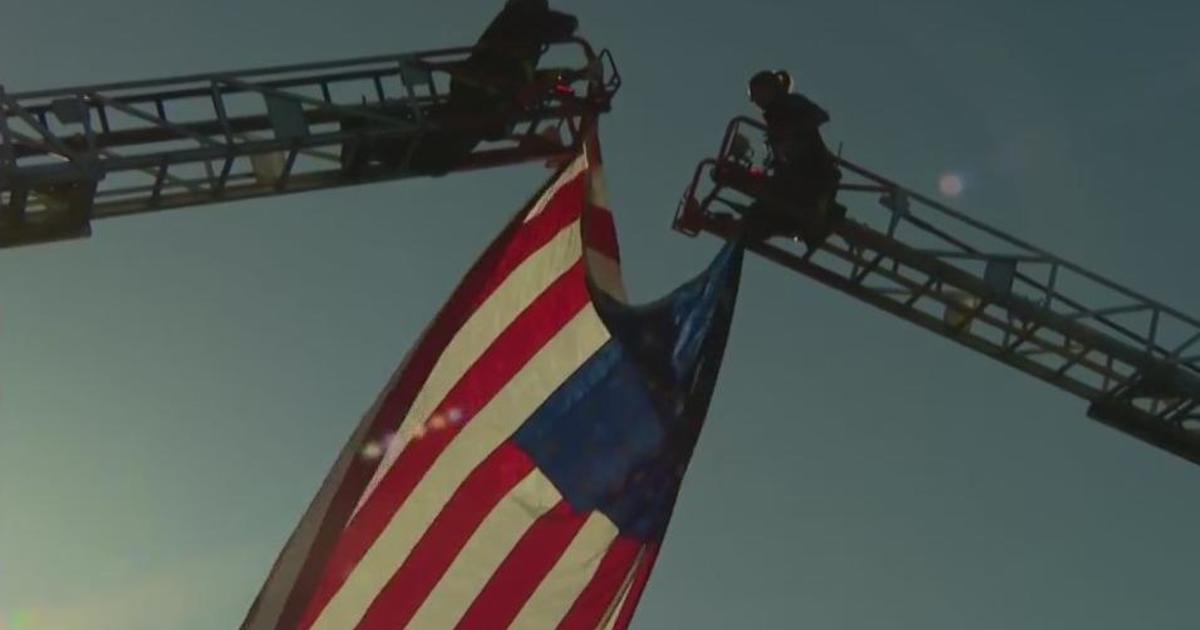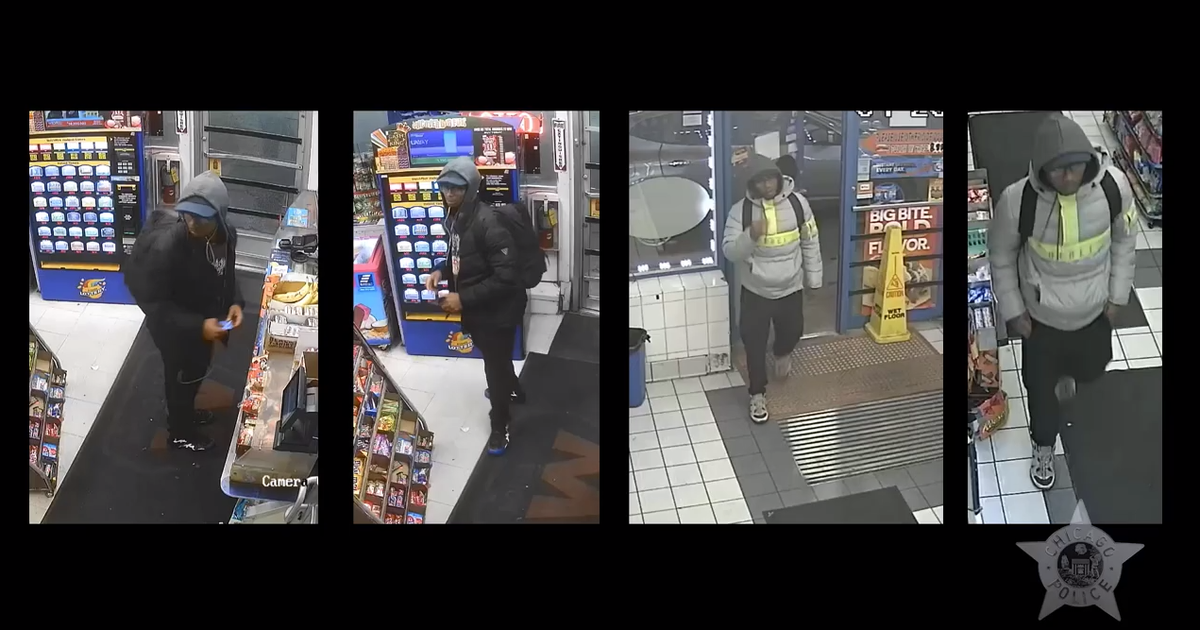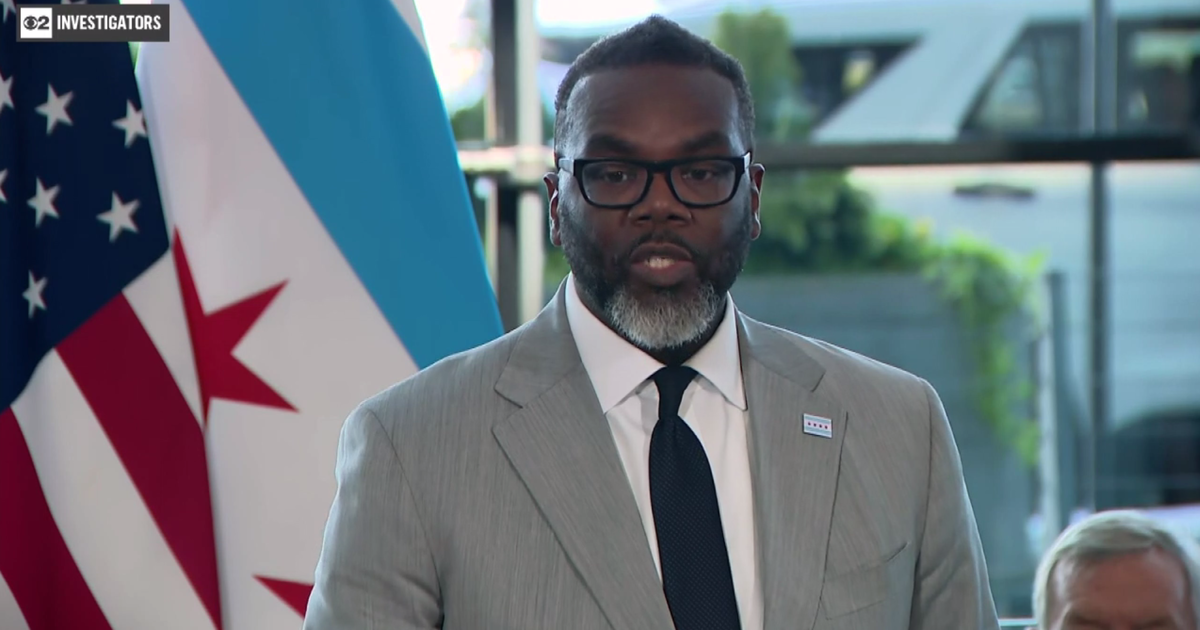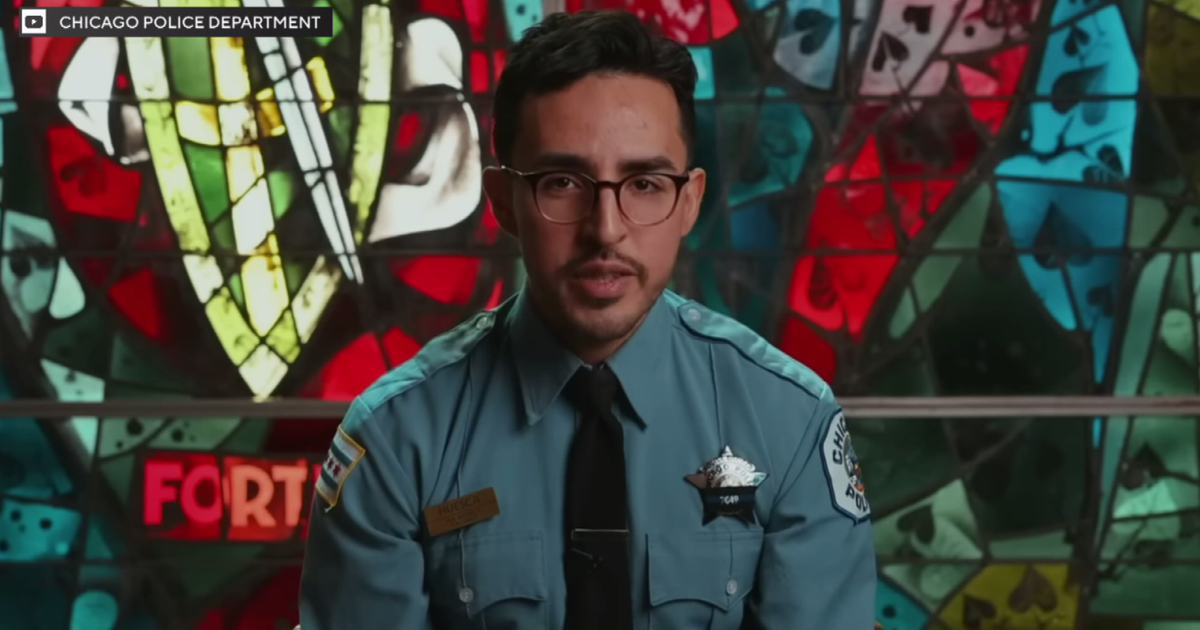Report Gives Chicago Police 'Beyond A Failing Grade' For Poor Clearance Rate Of Sexual Assault Cases
CHICAGO (CBS) -- There is really nothing worse than getting an F in school – or in anything else.
But Chicago Police are getting beyond a failing grade when it comes to solving sexual assault cases, according to a new report. The CBS 2 Investigators first exposed the problem a year and a half ago.
As CBS 2 Investigator Megan Hickey reported, the report released Thursday backs up the reporting that we've been doing for more than a year. It says 80 to 90 percent of sex assault reports made to the CPD don't lead to an arrest.
READ THE REPORT: Too Little, Too Late? The CPD's Response To Sex Crimes
On Thursday night, the CPD said that under a new superintendent, they're working on their approach.
Some sexual assault survivors went to Chicago Police for help, but then they waited for justice.
"They asked me, what were you wearing? Were you leading them on?" one survivor said.
CBS 2 Investigator Brad Edwards has been exposing single-digit arrest rates for sexual assault cases since May of 2019. All the women he interviewed said they were sexually assaulted in the city of Chicago, and all said their cases were not solved.
On Thursday, the Chicago Alliance Against Sexual Exploitation released the findings of their year-long study – involving trauma-informed interviews and forensic interviews.
Primary author Madeleine Behr found that just 10 to 20 percent of survivors saw an arrest in their case - and many had to wait weeks or months for their assailant to be detained.
Hickey: "You gave CPD a failing grade."
Behr: "That is beyond a failing grade. It's unacceptable."
Behr tracked arrest rates over a 10-year period and found that while the number of reports are up - and given time and funding restraints for police, the clearance rate has fallen.
"We would still expect a better result than four and a half percent for the year of 2019 for rape cases," Behr said.
Carrie Ward, the executive director of the Illinois Coalition Against Sexual Assault, said me she wasn't surprised by the findings.
"This information pinpoints a large amount of very specific data for victims in the Chicago area," Ward said. "But I think not only in the state of Illinois, but nationwide, we know that rape survivors face these kinds of struggles on a regular basis."
The CPD declined to comment on our reporting back in 2019. But on Thursday, they issued a statement saying they've taken steps to train detectives to conduct evidence-based, trauma-informed and victim-centered investigations.
The Police Department pointed out that this is "not something that police can solve alone."
Behr agrees.
"They're showing up in many other places – at rape crisis centers; at legal aid offices," she said. "We have to make sure that we have services and programs and funding in place to support them wherever they are showing up."
We asked for an interview Thursday. Chicago Police responded with a statement, saying in part that the City was awarded a nearly $1 million grant from the Department of Justice this week to "improve its response to gender-based violence."
Given the low arrest rate, there is also the question of how many of these cases actually end in charges. That data has been hard to come by.
This latest study was actually originally focused on both CPD and the Cook County State's Attorney's interaction with sexual assault victims, but researchers decided to split up the study. Thus, we'll be learning more about the criminal justice stats in the coming months.
We should also note that the Chicago Police department has *no specialized unit to investigate sex crimes.
For comparison, we reached out to police departments in New York and Los Angeles. Both the NYPD and the LAPD said they have teams of officers dedicated solely to investigating sex crimes.
Meanwhile, Edwards noted that he spent months in 2019 with a team of investigative producers, analyzing data for his earlier story on this subject. He said nothing has changed since then.
If a crime takes place, there are four steps – report, arrest, charge, and convict. That involves first the Police Department, then prosecutors at the State's Attorney's office, and finally the court system.
In Cook County, there is no tracking between those steps. There are walled-off silos between the Police Department and the State's Attorney's office – meaning there is no communication and no information sharing. Thus, no one knows how many reports lead to charges, let alone convictions.
By comparison, in New York City – where the NYPD and five different District Attorney's offices and criminal court systems corresponding to each of the boroughs are involved – police said their average clearance rate for forcible rape is 50 percent annually. That, again, took one phone call.






